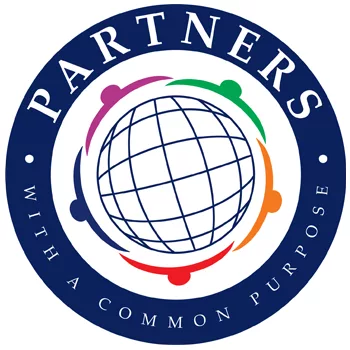Partners with a Common Purpose: Industry and Regulators Partner in Food Safety and Defense

Common purpose: Noun (plural: common purposes); of a group: having the same purpose or intent in some action or series of actions
In the U.S. food safety system, you will find both industry and regulators supporting that one goal—the common purpose, if you will. All want the same thing: to protect public health and serve consumers in a way that meets that purpose. Whether you’re talking about a health inspector, food producer/manufacturer, federal or state regulator, retail food outlet, restaurant—or anyone in between—each member of our system at the national, regional, state, and local levels is focused on keeping the public safe and our food supply consumable without fail.
“The PwCP [Partners with a Common Purpose] initiative seeks to establish equal partnership between industry and regulatory representatives,” says Joe Corby, Association of Food and Drug Officials (AFDO) senior adviser for food safety and PwCP co-founder (see “What Is PwCP?”). “This provides greater collaboration towards continuously improving the safety of the food supply and public health. The system is only as strong as the degree to which all stakeholders collaborate and understand the risks, challenges, and obstacles in the system that have to be overcome for it to be successful. In short, a high tide lifts all boats.”
“From the very beginning, the goal has been to extend the impact beyond each stakeholder group’s individual interests and focus on the common good,” says Mark Miklos, program director, member engagement, at the National Restaurant Association and co-founder/chairman of the PwCP organizing committee. “Partners with a Common Purpose recognizes that protecting the public health, enhancing customer service, and protecting one’s brand is a common purpose that can serve as a major driver of successful collaboration. We have seen this approach work in other arenas, and to date, it is working successfully here.”
PwCP’s roots are in a collaboration outlined by Miklos and Hal King, Ph.D., in 2009, when the pair oversaw food safety efforts for Waffle House and Chick-fil-A, respectively. They outlined their approach to collaboration with regulatory authorities in an article that appeared in the Georgia Environmentalist that year.[1] Their efforts at the time were based on changing attitudes about the notion of partnership between health inspectors and food establishments from adversarial to collaborative; they focused on their common purpose—mutual benefit to the public health and economic growth that supports both. PwCP became a reality when it was kicked off at the 2018 AFDO Education Conference, where the first brainstorming session was held in Burlington, VT.
That session and the two that followed in 2019—at the Food Safety Summit and the National Environmental Health Association (NEHA) Education Conference—sought to create an understanding of and agreement on what the common goals for food safety are. From brainstorming in a “safe harbor” environment where all points of view were welcome and respected, some clear themes emerged. Benefits as well as barriers to collaboration and how to overcome them were discussed. As equal partners, more than 450 participants shared their desire to impact food safety control in their unique roles. These safe-harbor conversations are a hallmark of the PwCP approach. There will be four PwCP sessions in 2020 (see “Upcoming Opportunities to Participate in PwCP”).
“The spirit of collaboration was evident in the session I attended,” says Steve Moris, program manager for the Division of Food Safety and Lodging at the Kansas Department of Agriculture and AFDO past president. “We all have things in our part of the food safety system that can and should be better. Once we could see there is always room for improvement for ourselves and others, it was a game changer. We all want to be better.”
The six common themes of the 2019 workshops were Communication; Education; Food Safety Culture and Awareness; Uniformity and Standardization; Novel Tools, Technology, and Products; and Recalls and Traceability.
Communication – This theme underlines the importance of explaining the “why,” focusing on growing our proactive approaches and developing routine contact between food safety system participants rather than waiting to talk in crisis.
Education – Building for success based on humanizing regulators and industry through education and presenting a joint front by collaborating on trainings.
Food Safety Culture and Awareness – Promoting the importance of management buy-in within all organizations involved in the food safety system and encouraging change through the Food Safety Modernization Act (FSMA) where appropriate and productive.
Uniformity and Standardization – Accepting the retail food code as the overarching guide for successful retail food safety while recognizing the successes and challenges jointly experienced by each component of the system and collaborating to provide uniformity through the continued implementation of FSMA or preventive controls.
Novel Tools, Technology, and Products – Taking advantage of automation and the Internet of Things as often as possible to provide faster, better, and more effective solutions so that food safety expertise can be freed up to do what automation cannot.
Recalls and Traceability – Improving the effectiveness of recalls by means at all levels, and removing redundancy while increasing the speed of traceability.
Taking a solutions-based approach to identify next steps, the continuum shown in Figure 1 is proposed based on the generalized themes of the comments submitted by PwCP attendees. This continuum illustrates that each general theme drives the subsequent theme, each offering its own benefits to a successful industry/regulatory collaboration as well as its own challenges. 
“Creating a successful foundation through collaboration early in the continuum will assist in achieving success later in the process,” says Miklos. “Things like proactively bringing the appropriate industry and regulatory partners to the table in a safe-harbor environment to communicate mutual goals around food safety may help foster better education and understanding around the challenges each group must address in ensuring a safe food supply.”
“This education can assist in fostering a strong food safety culture within their agency or company,” adds Corby. “That culture also impacts how regulators and industry then interact with each other. This movement may continue down the continuum, leading to more uniform food safety policies, novel technology development based on standardized practices and regulations, and increased traceability and recall effectiveness due to increased industry/regulatory communication and collaboration.”
Brooke Benschoter, APR, M.Sc., supports AFDO and its mission as the director of communications. She received her M.Sc. in leadership development, organizational development, and adult learning from Drake University.
Reference
1. King, H and Mark S. Miklos. 2009. “Partners with a Common Purpose.” Georgia Environmentalist 31:15.
Looking for quick answers on food safety topics?
Try Ask FSM, our new smart AI search tool.
Ask FSM →








